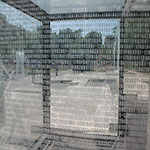Euroacademia Conferences
 Europe Inside-Out: Europe and Europeanness Exposed to Plural Observers (9th Edition) April 24 - 25, 2020
Europe Inside-Out: Europe and Europeanness Exposed to Plural Observers (9th Edition) April 24 - 25, 2020 Identities and Identifications: Politicized Uses of Collective Identities (9th Edition) June 12 - 13, 2020
Identities and Identifications: Politicized Uses of Collective Identities (9th Edition) June 12 - 13, 2020 8th Forum of Critical Studies: Asking Big Questions Again January 24 - 25, 2020
8th Forum of Critical Studies: Asking Big Questions Again January 24 - 25, 2020 Re-Inventing Eastern Europe (7th Edition) December 13 - 14, 2019
Re-Inventing Eastern Europe (7th Edition) December 13 - 14, 2019 The European Union and the Politicization of Europe (8th Edition) October 25 - 26, 2019
The European Union and the Politicization of Europe (8th Edition) October 25 - 26, 2019 Identities and Identifications: Politicized Uses of Collective Identities (8th Edition) June 28 - 29, 2019
Identities and Identifications: Politicized Uses of Collective Identities (8th Edition) June 28 - 29, 2019 The European Union and the Politicization of Europe (7th Edition) January 25 - 26, 2019
The European Union and the Politicization of Europe (7th Edition) January 25 - 26, 2019 7th Forum of Critical Studies: Asking Big Questions Again November 23 - 24, 2018
7th Forum of Critical Studies: Asking Big Questions Again November 23 - 24, 2018 Europe Inside-Out: Europe and Europeanness Exposed to Plural Observers (8th Edition) September 28 - 30, 2018
Europe Inside-Out: Europe and Europeanness Exposed to Plural Observers (8th Edition) September 28 - 30, 2018 Identities and Identifications: Politicized Uses of Collective Identities (7th Edition) June 14 - 15, 2018
Identities and Identifications: Politicized Uses of Collective Identities (7th Edition) June 14 - 15, 2018
Illustration of a Memory: Lustration and Memorialization as Joint Mechanisms for Transitional Justice in Estonia
-
-

-
Presentation speakers
- Natalie M. Balents, The Fletcher School of Law and Diplomacy, Tufts University, USA
- Download presentation
Abstract:
Mechanisms for reparations are often of a legal and exigent nature that requires assistance from external actors such as states, international courts and international organizations. To be sure, such noble interference can be welcome and achieve democratic results. However, in the case of Estonia, I would like to consider the existence of a harmonization between legal and extra-legal mechanisms over a longer time frame, and how this may be instrumental in fostering healing, steered and owned by the nation itself. The purpose of this paper is to evince the juxtaposition of memorialization and lustration; I also question if this was effective in offering redress to a nation in transition. After offering some disadvantages and advantages of these two mechanisms, I aim to defend them and show how they can be instrumental in redressing past wrongs by legitimizing a collective narrative. By memorialization, I mean the public rectification of a wide spectrum of memorials, but more specifically the museums erected to archive and research information during occupations in acknowledgment of the social need for justice that overlaps memory and regional identity. By lustration, I mean the sequential adoption of legislature that seeks to develop a nascent political culture, while addressing local concerns and political anxieties of historical repetition. The development of legislation alongside memorialization can be seen as a way to legitimize the memorialization process. The inclusion of memorialization in transitional justice movements has become increasingly popular although not a new mechanism by any means; it goes beyond physical memorials and should be employed sincerely with the involvement of the public. When employed in this way, such mechanisms can be seen as preventative as it attempts to foster awareness through collective memory that precludes future mass human rights violations with the rule of law.
-
Related Presentations


















